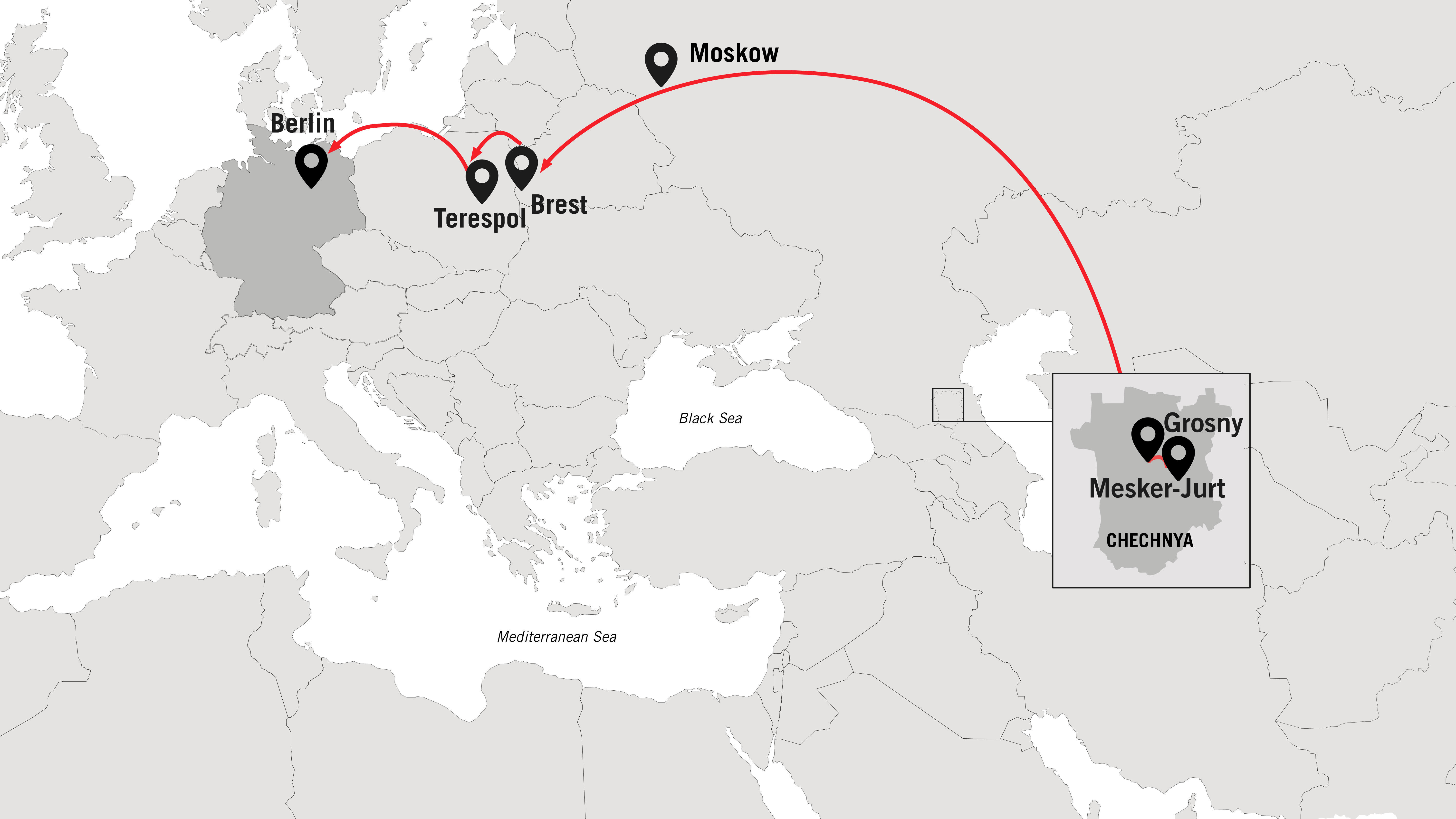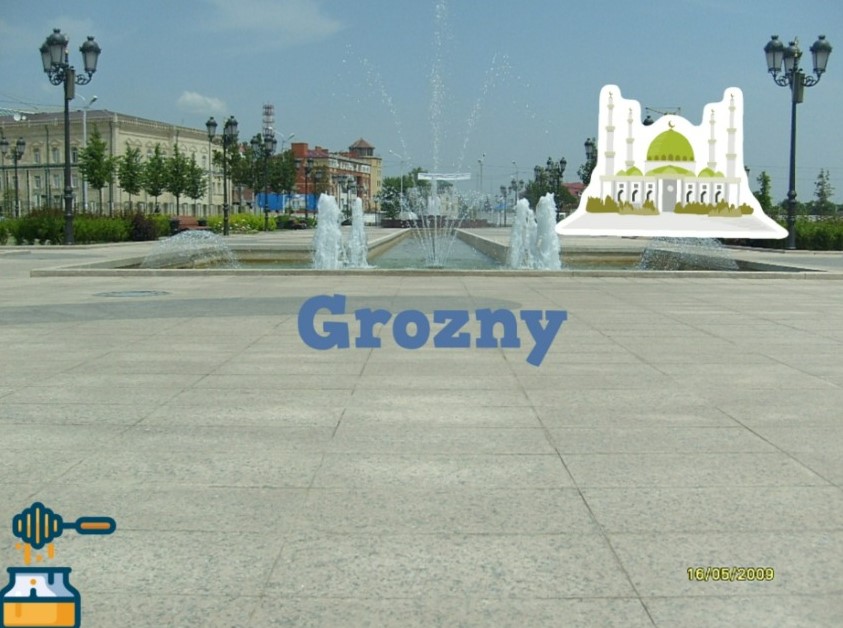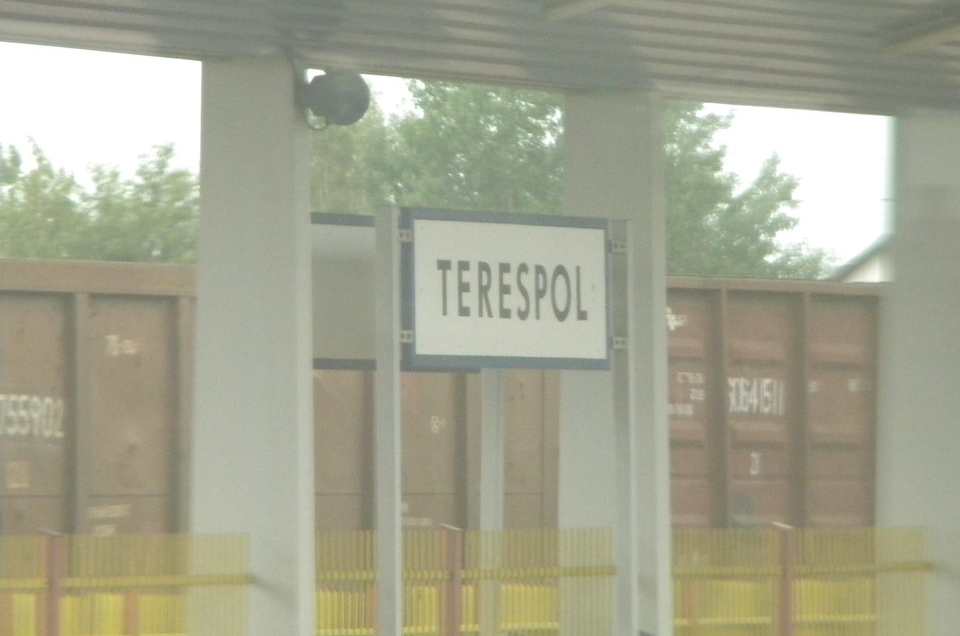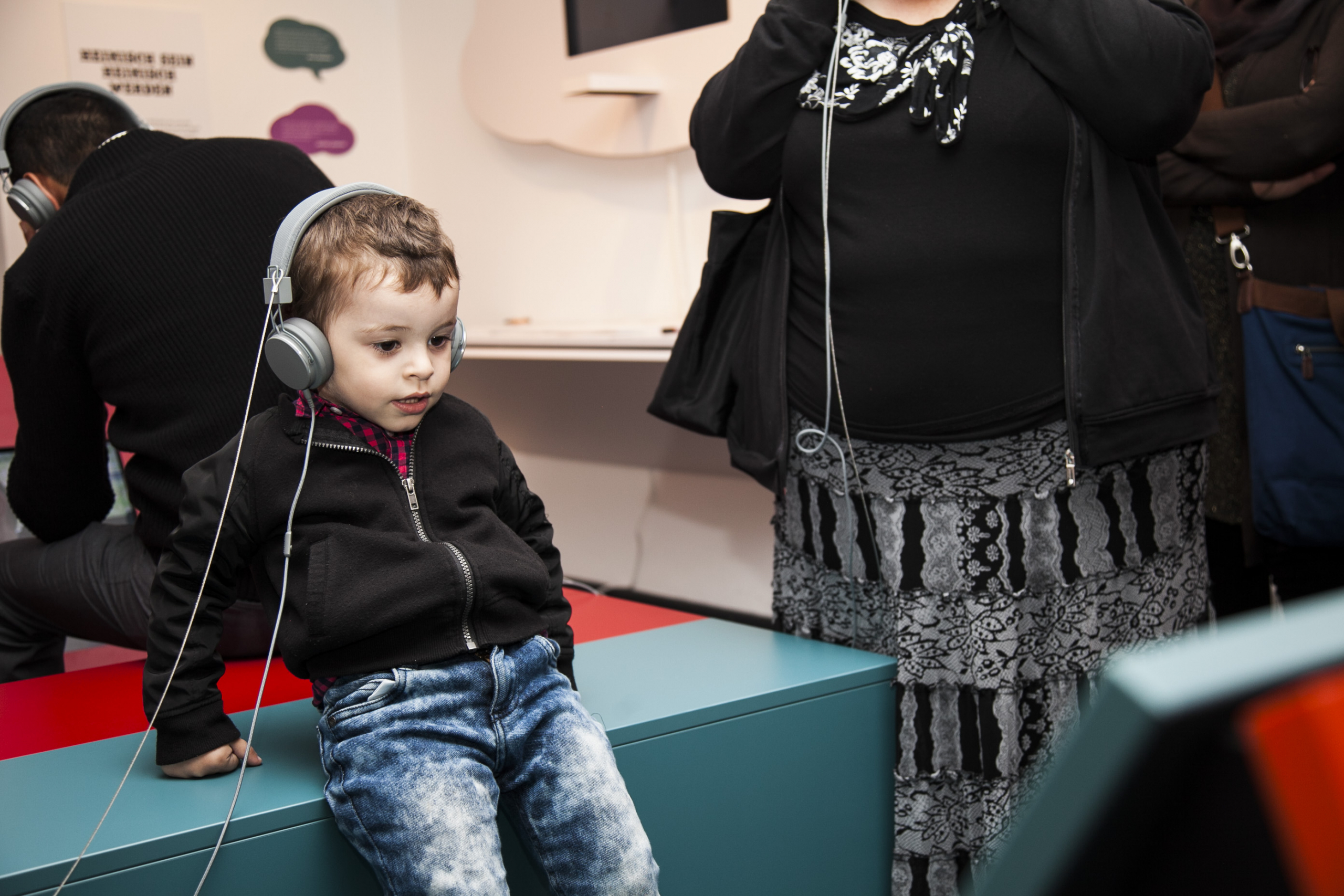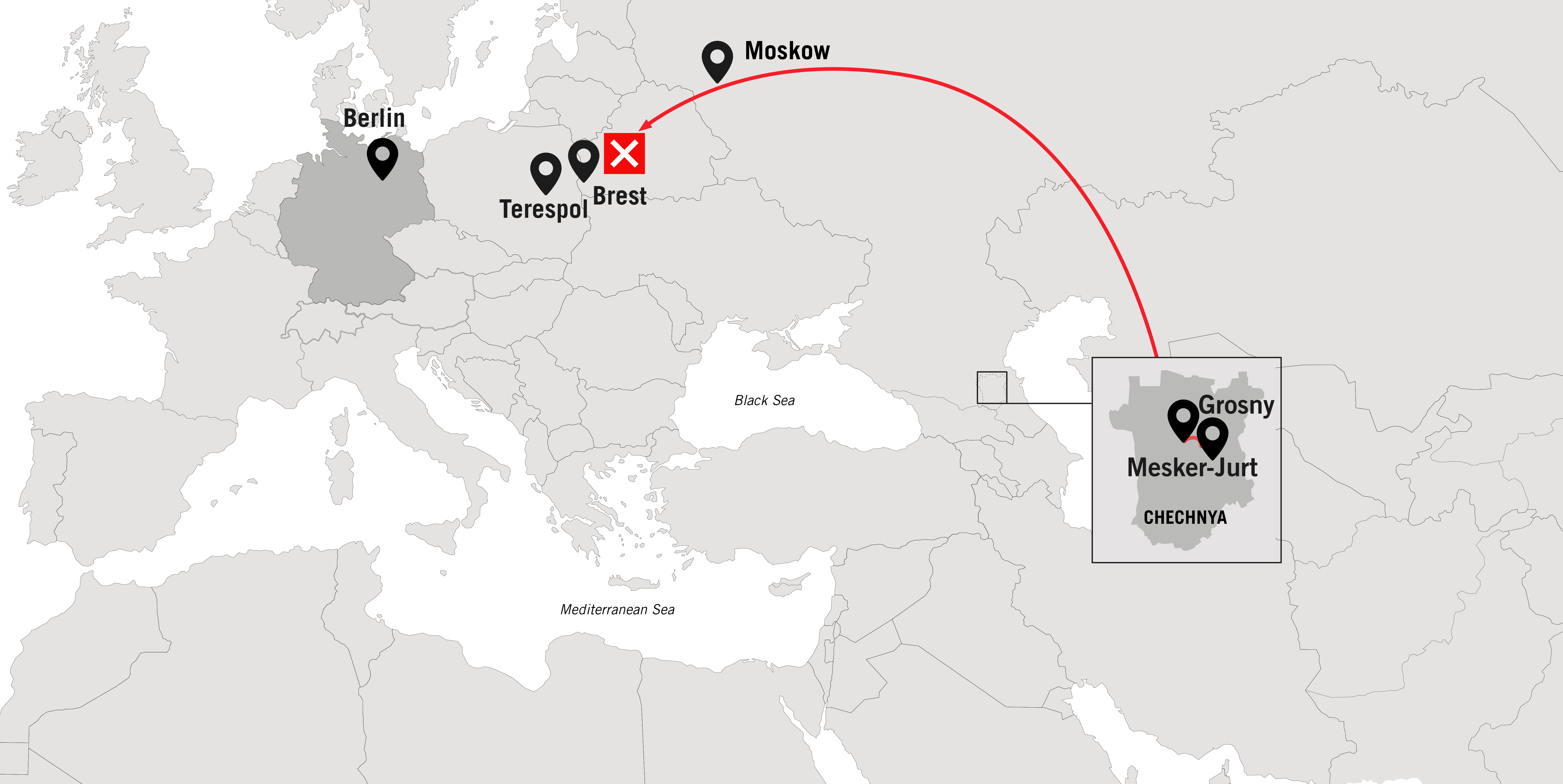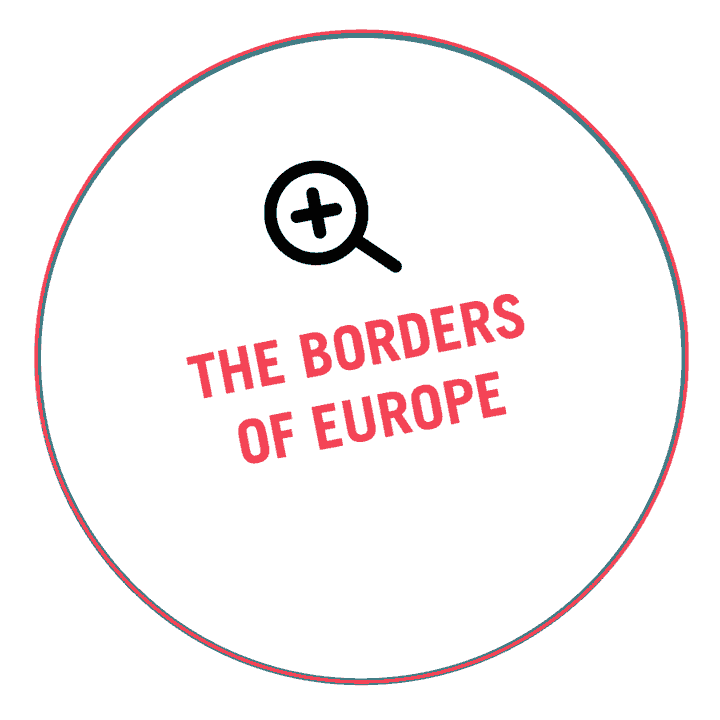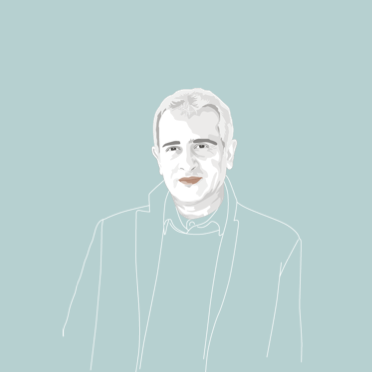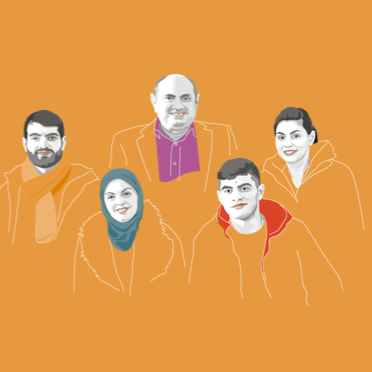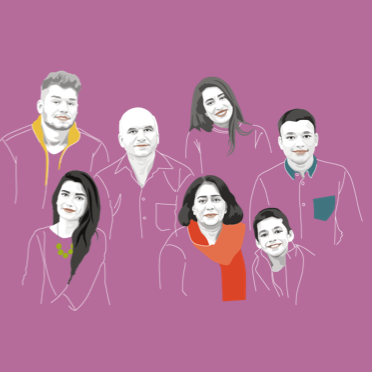Gedaev Family
The Gedaev family has been living in Berlin since 2011. Their life in Chechnya was marked by war and massive human rights violations. In Germany, they manage to build a new life, though it is still defined by their unsettled residence status even after ten years.
Luisa Muslimova
Usman Gedaev
Apti
Ashat
Abu
Ayub
Mesker-Yurt, Chechnya

Luisa at the market in Mesker-Yurt, 2007
Chechnya was at war with Russia until 2009. Even after the war, human rights violations continue under President Kadyrov. In the name of “combatting terrorism,” people are arbitrarily arrested, tortured, and killed. This also happens in Mesker-Yurt, the village where the Gedaevs live with their four children. Luisa Muslimova supports the family by selling self-grown vegetables at the market.
Mesker-Yurt, Chechnya
There is hardly any work during these years. Therefore, the men often take care of the children, while the women earn the family’s livelihood. Usman Gedaev had previously worked for an organization that looks for people who disappeared without a trace and supports war invalids and the sick.

Usman with a traditional Chechen head covering, 2009
Grosny, Chechnya
When Usman is threatened by Kadyrov’s militias, the family decides to flee. Apti has to discontinue his training to be a radio mechanic, and Abu, Ayub, and Aishat leave school. They take off in two cars headed for Grosny. After getting caught in military control points along the way, they are separated. Luisa changes the travel plans and drives with two of the children (Apti and Aishat) to relatives. They hope to be reunited with the rest of the family there.
Moscow, Russia

Memories of Mesker-Yurt
Usman takes the travel route they originally planned and travels by train to Moscow along with the other two children, Abu and Ayub. On the train there are many human smugglers offering their services. Usman declines. Luisa and the children stay with the relatives. She is afraid to return to her village alone.
Brest, Belarus
From Moscow, Usman, Abu, and Ayub continue on to Brest. From there they board a regional train to Poland. Luisa and the children stay with the relatives in Chechnya. Two months pass before they can join the others.

Family photo from their home in Chechnya
Terespol, Poland
In Terespol, Usman, Abu, and Ayub are registered as refugees and assigned lodgings. The conditions are terrible, so Usman wants to try to petition for asylum in Germany with the children. They do not travel by train because they are afraid of police checks. They follow advice someone gave them and take a taxi. The taxi ride alone costs Usman almost all the money he has.
Berlin
Usman, Abu, and Ayub arrive in Berlin in May 2011. After registering they are given lodgings in the Marienfelde temporary housing facility. Two months later, Luisa, Apti, and Aishat follow along the same route. They have to borrow the money for the journey. Usman procures all the documents he needs for family reunification in Berlin. They are successful and the Gedaev family remains in the refugee housing until 2013.

Family photograph, 2012, Berlin-Marienfelde
Forced Migration, 1 year later
"If you have a small problem in Chechnya, it can very quickly become a big, life-threatening problem. Everyone has to decide for themselves if they can live with it, and in the worst case you perhaps pay for it with your life, or else you do something else."
(Usman Gedaev, 2012)
Forced Migration, 5 years later

Family photo from 2016, Berlin–Hohenschönhausen
The family moved into their own apartment and they feel at home there. Luisa and Usman had another son, Abdullah. Aishat and Apti both got married and have their own children. Abu and Ayub still live at home.

“Suspension of Deportation” by Tim Reckmann | a59.de is licensed under CC BY-NC 2.0
The family’s status in Germany is only that of a Duldung (temporary suspension of deportation) The children have to stop going to school and discontinue their training programs when they receive a border-crossing certificate (Grenzüberschrittsbescheinigung), requiring that they leave the country. Abu files a lawsuit in order to receive a work permit in 2016, so he can start training as an auto mechanic. Apti also files a suit in order to be able to work for a security company.

The brothers’ medals, exhibition object
Apti and Abu are athletes. Wrestling has been very important to them ever since they were children. Once they reach legal age they are no longer permitted to participate in competitions because they have uncertain residence status. The family displays two medals in the Life after Forced Migration exhibition.
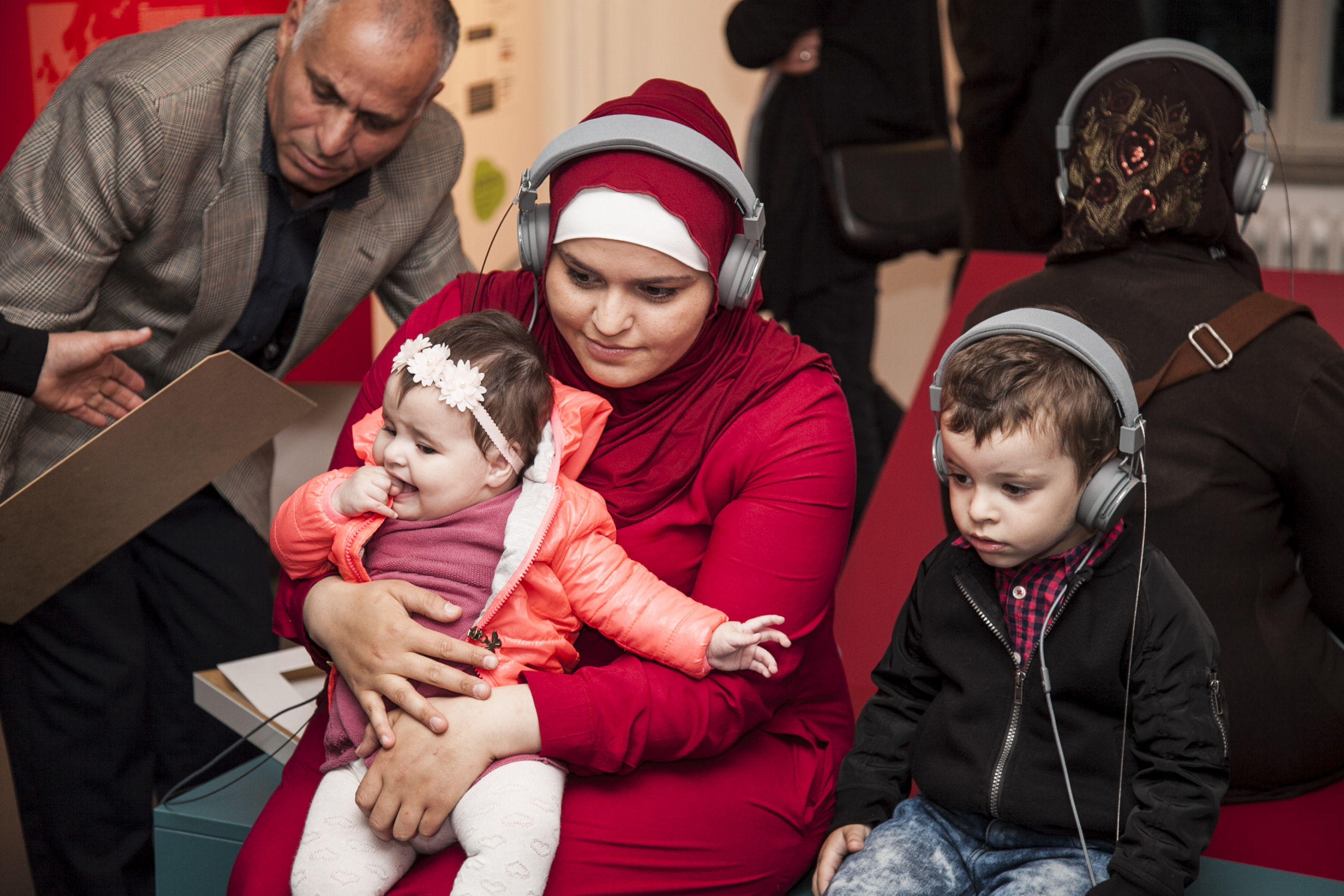
Usman, Aishat, Amina, and Abdullah, Opening of the exhibition, 2017
Most important for the parents are the safety and future of their children. They see very few chances for themselves on the labor market. Nevertheless, they both want to have new jobs. Usman supports the Club Dialog in the Russian House and is helping to build up a German–Northern Caucasus cultural center.

The Gedaev family with children and grandchildren
Luisa earned the livelihood for the entire family in Chechnya. It is difficult for her to no longer have a job. Although she is fully engaged with caring for the family, she would like to work outside the home again as soon as her youngest son starts daycare.
"Just because I have problems with my papers doesn’t mean that the situation cannot be resolved. That’s part of life. Everyone has problems. That will always be the case. We got started. It’ll definitely keep on going."
(Usman Gedaev, 2016)
Forced Migration, 10 years later
Even ten years since they fled Chechnya, the residence status of the Gedaev family in Germany is still uncertain. Only Apti has received a settlement permit, since his wife has German citizenship and they have children. All the other members of the family are still waiting. Aishat’s asylum proceedings have been ongoing for ten years. She has had the right to permanent residence status for two years already. The process is stagnating but she is not giving up.
Reports in Germany about Chechnya, the human rights situation there, and the situation of Chechen refugees are often imprecise. The German–North Caucasian Social and Cultural Center (DNSK), which Usman helped to found, fights stereotypes and prejudice against the Chechen community. His son Ayub also completed an internship there.
Place of Refuge in Berlin-Marienfelde?
Could the Gedaev family have made it to Berlin-Marienfelde if they had fled ten years later?
In 2021, Poland has been pushing for the construction of a fence extending 190 km (ca. 120 mi) along its border to Belarus, in order to prevent refugees from crossing the border into the European Union. Up to then the border was already secured with barbed wire and military patrols. NGOs have been reporting since 2017 that people seeking protection are stopped along the Belarus-Poland border (Brest-Terespol). According to EU guidelines, member states are obliged to allow people to petition for asylum. The border fence and the border practices prevent that.

